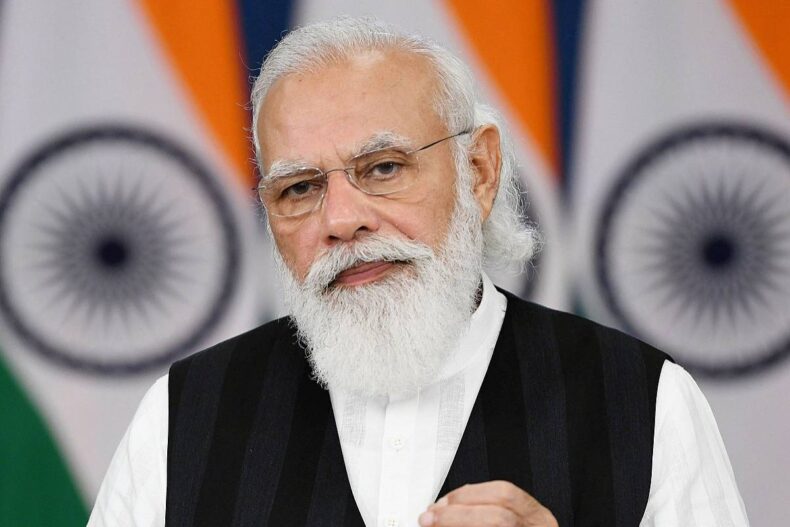Prime Minister Narendra Modi on Sunday criticized political parties and leaders for engaging in “politics of shortcut” and ruining the nation’s economy for their “personal interest” while inaugurating infrastructure and development projects worth Rs. 75,000 crores in Nagpur.
Addressing a gathering at MIHAN (multi-modal international passenger and cargo hub airport at Nagpur), in Nagpur, the Prime Minister called for a “sustainable development and sustainable solution” so that the country can follow in the footsteps of once underdeveloped countries like Singapore and South Kores, he said.
Flagging off the infrastructure and development projects in Nagpur, including Phase-1 of the Samruddhi Expressway to Mumbai and the Nagpur Metro, Modi said, “I also want to caution the people of Maharashtra and the people of the country about a distortion coming in the politics of India. This is the imperfection of shortcut politics. This is the imperfection of looting the hard-earned money of taxpayers”. Further, he added these political parties who are adopting shortcuts, are the biggest enemies of every taxpayer of the country. Those whose only aim is to come into power, whose aim is only to grab the government by giving fake promises, can never build a country.
In reference to the popular Hindi proverb, “Aamdhani atthanni kharcha rupaiya”, on expenditure far in excess of income, Modi said, the political parties which have embraced this bad policy will make this country hollow from the inside. In many countries of the world, we have seen the entire economy being ruined because of such bad policies. Together we have to save India from such bad policies. On the one hand, there is directionless politics and only selfishness, which believes in the bad policy of half income and full expenditure. On the other hand, there is patriotism and dedication, and pursuit of sustainable development and sustainable solutions.”
In this context, Prime Minister Modi also referred to the Gujarat Election result from last week in which the BJP earned a massive victory and took back control of the state. According to him, the decision was “the outcome of the economic policy and development strategy of sustainable development and sustainable solutions.”
Modi on taxpayers

“To such politicians who use shortcuts, I would humbly and respectfully say: understand the vision of sustainable development, understand its significance, how critical it is for the nation today, and understand that, instead of using shortcuts, you can win elections by pursuing sustainable development. Election victories are repeatable. I wish to tell such groups that they shouldn’t be terrified. I have no doubt that you will abandon the route of shortcut politics once you put the interests of the nation first,” he added.
Modi avoided mentioning any specific parties or people, but he has already spoken out against the politics of “freebies”—a stand that his party has seized on to mainly target Delhi’s Aam Aadmi Party, which won the MCD elections last week. The Congress’ election promise in Himachal Pradesh to restore the Old Pension Scheme (OPS), which was a major factor in the Opposition party regaining power last week, but also something that the BJP was unable to address. The Prime Minister also targeted earlier governments on the issue of corruption.
Warning that India cannot miss the next wave of development, Modi said, “We all remember, when the first industrial revolution came, India could not take advantage of it, we remained behind in the second-third industrial revolutions as well, but today when it is time for the fourth industrial revolution, India cannot miss it. I will say again, such an opportunity does not come to a country again and again. No nation can function with shortcuts. Permanent growth, working for permanent solutions, and having a long-term perspective is essential for the country’s progress. And the foundation of sustainable development is infrastructure.
By giving the example of South Korea and Singapore Modi added, that the “need of the hour is that every penny of the governments should be spent on building a bright future for the young generations”.














